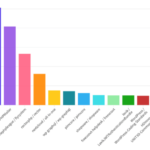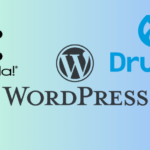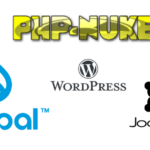PHP software engineer success stories often start with a single line of code, a problem to solve, and an undying passion for technology.
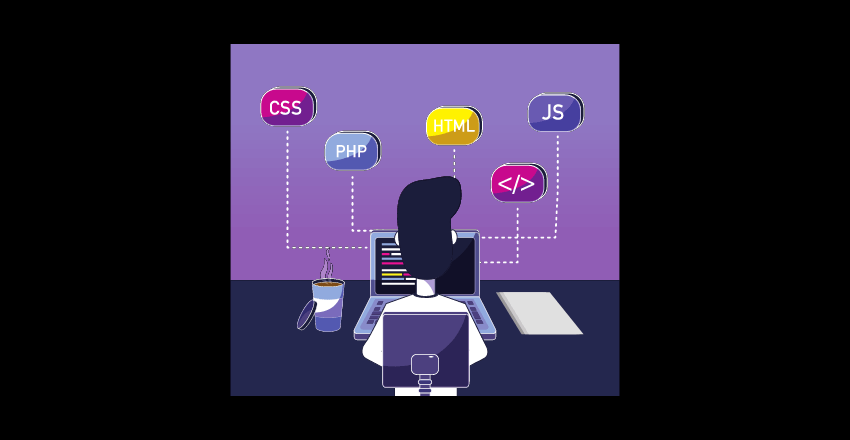
PHP Software Engineering: Unleashing Your Potential in a World of Web Development
“If Python is the poetry of programming languages, then PHP is its prose. It’s a tool to get things done, and it does it with elegance.”
Programming languages come and go, but PHP holds its ground. If you’ve ever wondered about the power of PHP in software engineering, you’re in the right place. In this blog post, we’ll explore the importance of PHP software engineering, its evolving landscape, and how you can excel in this dynamic field.
PHP: The Underrated Powerhouse of the Web
When Rasmus Lerdorf introduced PHP in 1995, it was just a small set of CGI binaries written in C. Today, according to W3techs PHP powers 77.4% of all the websites whose server-side programming language we know – a testament to its enduring influence.

From personal blogs to the most visited websites worldwide, PHP remains a key component of the web’s DNA.
Despite the emergence of numerous languages and frameworks, PHP continues to be a popular choice for web development due to its flexibility, robustness, and a large supportive community.
The Role of a PHP Software Engineer
PHP software engineers don’t just write code; they breathe life into websites and applications. They’re problem solvers, critical thinkers, and creators all rolled into one.
Skills typically required for this role include proficiency in PHP frameworks (like Laravel or Symfony), understanding of MVC design patterns, knowledge of front-end technologies, and more.
PHP Software Engineering: Discovering the Opportunities
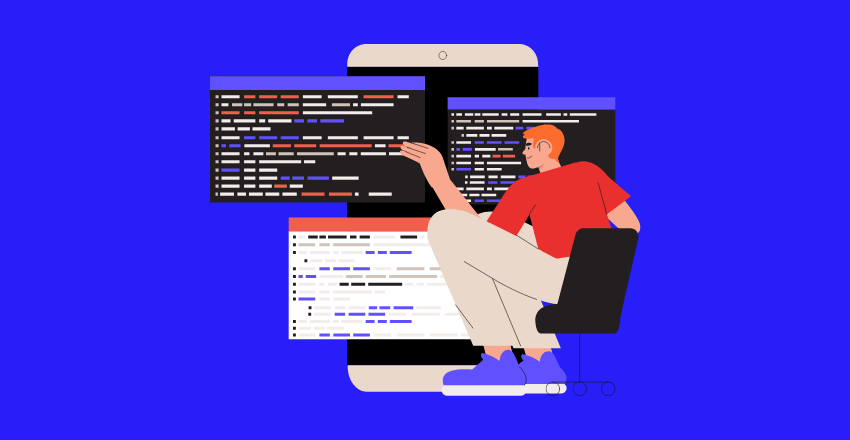
“The only way to do great work is to love what you do.” – Steve Jobs
Do you love to code? Are you passionate about solving problems, developing innovative solutions, and creating robust, dynamic websites?
If so, a career as a PHP software engineer might be the perfect path for you.
PHP, one of the most widely used languages in the world of web development, presents numerous job opportunities. Whether you’re a seasoned PHP professional or just starting your journey in this field, this section will help you navigate through the diverse job market of PHP software engineering.
The Job Market: PHP Software Engineers in High Demand
With 77.4% of all websites running on PHP, the demand for skilled PHP software engineers is undeniably high.

From start-ups to tech giants, companies across various sectors are on the lookout for proficient PHP developers.
PHP Software Engineer Jobs
There are numerous job postings seeking PHP software engineers. These roles often involve developing PHP applications, troubleshooting, and optimizing core web software functionality, and integrating data from various backend services and databases.
Companies value not only technical proficiency in PHP but also the ability to problem-solve and work in team settings.
PHP Developer Vacancies
They are sought after for their expertise in writing server-side web application logic. PHP developer vacancies are plentiful in companies that emphasize building websites with dynamic, user-driven functionality.
Many of these roles require familiarity with PHP frameworks like Laravel or Symfony, JavaScript, HTML, and CSS.
Entry-level PHP Software Engineer Jobs
For those starting their PHP journey, don’t fret; there are numerous entry-level PHP software engineer jobs available. These roles often serve as a springboard to a vibrant career in PHP development.
They provide an opportunity to hone your PHP skills, learn from experienced professionals, and understand the practical applications of PHP in a work setting.
PHP Programmer Jobs
Jobs for PHP programmers focus on creating and implementing an array of web-based products using PHP, MySQL, Ajax, and JavaScript. A PHP Programmer is responsible for managing back-end services and the interchange of data between the server and the users.
Section Sum Up: Your PHP Career Awaits
The world of PHP software engineering is full of exciting opportunities. Whether you’re an experienced professional looking for a challenging role or a newcomer eager to make your mark, PHP offers a world of possibilities.
So, go ahead and explore these job roles, tailor your resume, prepare for those interviews, and get ready to embark on an exciting journey in PHP software engineering. The PHP community is ready to welcome you!
PHP Software Engineering: Unraveling the Job Description

“Choose a job you love, and you will never have to work a day in your life.” – Confucius
Are you a budding programmer exploring career options? Or a seasoned professional considering a shift to PHP development? Understanding the job description of a PHP software engineer is your first step towards a successful career in this field.
In this section, we’ll decode the responsibilities, skills, salaries, and job requirements associated with PHP software engineering roles.
PHP Software Engineer: The Role and Responsibilities
At the core, a PHP software engineer uses PHP scripting language to create, maintain, and improve web-based software applications. But there’s more to this role than meets the eye.
Here are some typical responsibilities of a PHP software engineer:
- Design and Development: PHP software engineers design, develop, and manage web applications, ensuring optimal performance and responsiveness.
- Troubleshooting: Identifying and resolving technical issues is a critical part of this role. Engineers debug code, update existing components, and optimize systems for better performance.
- Collaboration: Often, they work in teams alongside other developers, UX designers, business analysts, and quality assurance professionals.
- Documentation: They also document their development process, code, and revisions, ensuring other team members can understand and work on the project.
Skills Every PHP Software Engineer Should Have
While each job might require a unique set of skills, there are common capabilities every PHP software engineer should possess:
- Proficiency in PHP: An in-depth understanding of PHP programming language is a given.
- Knowledge of PHP Frameworks: Familiarity with at least one of the popular PHP frameworks like Laravel, Symfony, or CodeIgniter is often required.
- Understanding of Front-End Technologies: Basic knowledge of front-end technologies such as HTML, CSS, JavaScript, and AJAX is beneficial.
- MySQL: A good understanding of MySQL or similar relational database management systems is essential.
- Problem-Solving Skills: The ability to identify, analyze, and resolve issues is crucial.
Salary: What Does a PHP Software Engineer Earn?
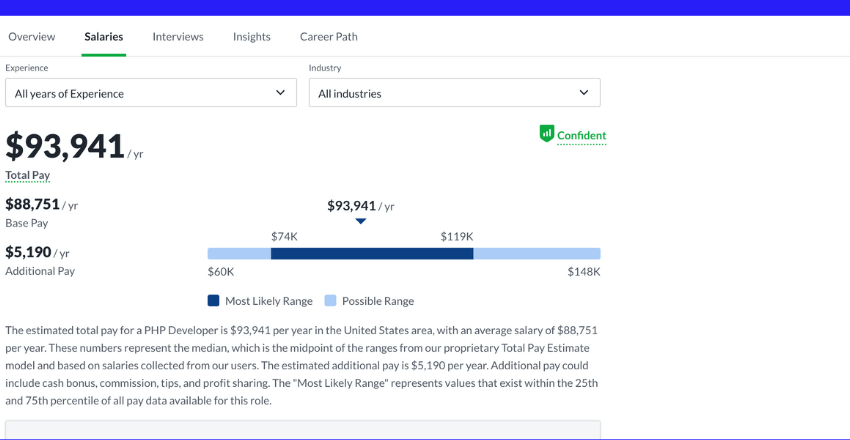
The salary of a PHP software engineer can vary widely based on experience, location, and the specific requirements of the role.
According to Glassdoor, as of 2023, the average salary for a PHP software engineer in the United States is around $93,941 per year, with the range typically falling between $79,000 and $108,000. Keep in mind that this is just an average, and actual salaries can be higher or lower.
Job Requirements: What Does It Take?
Typical job requirements for PHP software engineers may include:
- Educational Qualification: A bachelor’s or master’s degree in computer science, Information Technology, or a related field is often required.
- Experience: Depending on the role, employers may require a certain level of professional experience with PHP.
- Portfolio: Some employers may want to see a portfolio of your past projects or contributions to open-source projects.
- Certifications: While not mandatory, certifications like Zend Certified PHP Engineer can make a candidate more appealing.
Section Sum up: Embarking on Your PHP Journey
Understanding the job description of a PHP software engineer is the first step in carving out a successful career in this field.
The opportunities in PHP development are plentiful and can lead to rewarding careers. So, go ahead and acquire the necessary skills, meet the job requirements, and get ready to explore the dynamic world of PHP software engineering.
PHP Software Engineering: Charting Your Learning Path

“The capacity to learn is a gift; the ability to learn is a skill; the willingness to learn is a choice.” – Brian Herbert
PHP, with its extensive use in web development, offers a multitude of opportunities for those willing to learn. If you’re interested in embarking on a journey of PHP software engineering, this section is your guide.
We’ll introduce you to useful PHP programming tutorials, online courses, coding resources, and books that can help you master this powerful language.
PHP Programming Tutorials
Tutorials are a great way to start learning PHP or enhance your existing knowledge. Here are a few:
- PHP.net: The official PHP website offers an extensive manual that includes a getting started guide and detailed references.
- W3Schools PHP Tutorial: W3Schools provides a comprehensive PHP tutorial that covers the basics to more advanced topics.
- TutorialsPoint PHP Tutorial: This tutorial is excellent for beginners and also includes advanced topics like PHP forms, AJAX, and secure email.
Online Courses for PHP Software Engineering
Online courses offer structured learning experiences. Many come with interactive elements and assignments to test your understanding. Some noteworthy options are:
- Codecademy’s Learn PHP: This course covers PHP basics and offers hands-on coding exercises.
- Udemy’s PHP for Beginners: This course teaches PHP by building a complete content management system.
- Coursera’s Web Applications for Everybody: This specialization, offered by the University of Michigan, covers web application development using PHP and MySQL.
PHP Coding Resources
Enhancing your coding skills requires practice. Here are some resources to help you flex your PHP muscles:
- Exercism PHP Track: Exercism offers coding exercises to practice PHP and get feedback from mentors.
- Hackerrank’s PHP Domain: Hackerrank provides a collection of PHP challenges to enhance your coding skills.
- Codewars PHP Kata: On Codewars, you can solve PHP ‘kata’ — a term they use for coding challenges.
Best Books for PHP Software Engineers
Books provide in-depth insights and comprehensive knowledge. For PHP software engineering, consider the following titles:
- “PHP & MySQL: Server-side Web Development” by Jon Duckett: A hands-on guide to PHP and MySQL, complete with visual tutorials and practical examples.
- “Learning PHP, MySQL & JavaScript” by Robin Nixon: This book covers not just PHP but also how it interacts with MySQL and JavaScript for web development.
- “Modern PHP: New Features and Good Practices” by Josh Lockhart: This book explores the latest features in PHP and best practices in application architecture.
Section Sum up: Your PHP Learning Journey Awaits
With a myriad of resources available, there’s no better time to start or continue your PHP learning journey. Remember, learning is a continuous process — stay curious, keep practicing, and don’t be afraid to make mistakes.
PHP Software Engineering: Mapping Your Career Trajectory

“The future depends on what you do today.” – Mahatma Gandhi
In a world where technology is continually evolving, understanding the career trajectory and the future of your chosen field is pivotal. If you’re keen on charting a career in PHP software engineering or want to stay abreast of the industry’s future, this section is for you.
We’ll cover the PHP software engineer career path, the future of PHP software engineering, industry trends, and the job outlook.
PHP Software Engineer Career Path
A career in PHP software engineering typically starts with an entry-level role, such as a Junior PHP Developer. After gaining experience and honing skills, you can move up to a PHP Developer or Software Engineer position.
With more experience and a proven track record, you can advance to senior roles like Senior PHP Developer or PHP Software Architect. Along the way, you may choose to specialize in a specific area like CMS development, e-commerce, or API development.
Future of PHP Software Engineering
PHP remains a key player in the web development landscape, thanks to its simplicity, flexibility, and large user base. With PHP 8 introducing features like JIT (Just In Time) compiler and attributes, it’s clear that PHP is dedicated to maintaining its relevance and effectiveness in the evolving tech landscape.
While technologies like Node.js and Python are growing, PHP continues to be a go-to for many developers and companies due to its robustness and wide range of frameworks like Laravel, Symfony, and Yii. Thus, PHP software engineering is here to stay.
PHP Industry Trends
Some current trends within the PHP industry include:
- Use of Frameworks: More and more developers are leaning towards using frameworks like Laravel and Symfony for efficient and secure development.
- Headless CMS: With the rise of React and Vue.js, more PHP developers are utilizing PHP in a headless CMS setup, where PHP handles backend data and JavaScript frameworks handle the frontend.
- PHP 8 Adoption: As the latest major release, PHP 8 has brought significant performance improvements and new features, and its adoption is steadily increasing.
PHP Software Engineer Job Outlook
With the extensive use of PHP in web development, the job outlook for PHP software engineers is positive.
According to the U.S. Bureau of Labor Statistics, employment for software developers, including PHP developers, is projected to grow 25 percent from 2021 to 2031, much faster than the average for all occupations.
Section Sum up: The PHP Journey Continues
The career path of a PHP software engineer offers diverse opportunities for growth and specialization. With the continued relevance of PHP and a promising job outlook, there’s ample potential for those willing to learn and adapt.
Stay tuned to industry trends, keep honing your skills, and get ready to shape the future of web development with PHP.
Hiring a PHP Software Engineer: Your Simple Guide
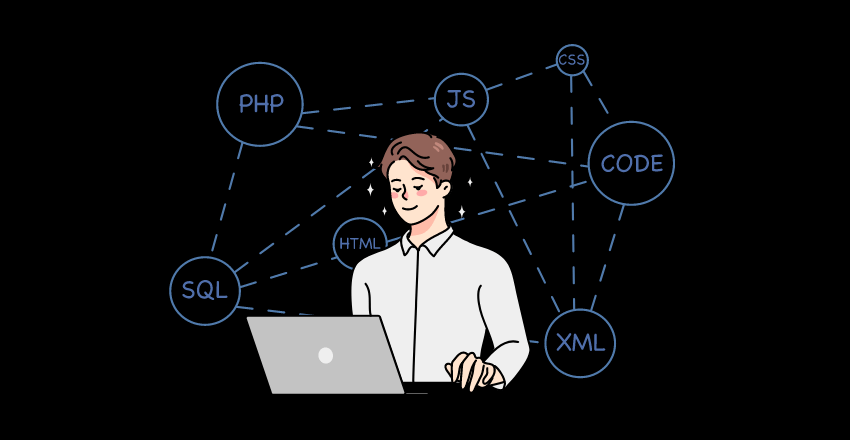
“The secret of my success is that we have gone to exceptional lengths to hire the best people in the world.” – Steve Jobs
If you’re looking to hire a PHP software engineer, you’re in the right place. Whether you’re a startup seeking to expand your tech team or an HR professional tasked with hiring the right talent, this section is for you.
We’ll cover strategies for hiring PHP software engineers, insights into PHP software engineer resumes, recruitment agencies specializing in tech hiring, and resources to find freelance PHP developers.
How to Hire PHP Software Engineers
Hiring the right PHP software engineer requires a strategic approach. Here are some steps to guide you:
- Define the Role: Be clear about the role and responsibilities. Is your PHP engineer going to work on backend development, front-end, or full-stack? Do you need them to have expertise in a specific PHP framework like Laravel or Symfony?
- Identify Key Skills: Besides the standard PHP, SQL, and HTML/CSS/JavaScript skills, consider if you need additional skills like experience with PHP 8, MVC architecture, or specific APIs.
- Create a Job Posting: Write a clear, concise job posting highlighting the role, key skills, and what you offer in terms of salary, benefits, and company culture.
PHP Software Engineer Resumes: What to Look For
When screening resumes, look for:
- Relevant Experience: How many years of experience does the candidate have in PHP development? Do they have experience relevant to your project?
- Education and Certifications: While a degree in computer science or a related field is common, also look for certifications like Zend Certified PHP Engineer.
- Project Portfolio: Do they provide a portfolio or links to projects they’ve worked on? This can give you a good idea of their practical skills.
PHP Software Engineer Recruitment Agencies
Tech-focused recruitment agencies can help streamline your hiring process. Some notable agencies include:
- Kaynes Holdings: Known for providing the top 1% competent web developers and software engineers from Latin America
- Robert Half Technology: Known for providing skilled IT professionals, including PHP developers.
- Hirephpdeveloper.dev: Hire the best remote PHP developers.
- CyberCoders: A leading tech recruiting company with a wide array of tech talent.
- Toptal: Connects top businesses with the top 3% of freelance PHP developers.
Finding Freelance PHP Developers
Freelance PHP developers can be a good fit for project-based work or when you need additional help. Platforms to find freelance PHP developers include:
- Upwork: Offers a wide range of freelancers, from beginners to highly experienced professionals.
- Freelancer: Allows you to post a project and receive bids from PHP developers worldwide.
- Toptal: If you’re looking for top-tier freelance PHP developers, Toptal vets their freelancers to ensure only the top 3% are accepted.
Section Sum Up: Building Your PHP Dream Team
Hiring a PHP software engineer can be a significant step in growing your business and realizing your project goals.
PHP Software Engineering: Navigating the Corporate Landscape

“Success in management requires learning as fast as the world is changing.” – Warren Bennis
If you’re a PHP software engineer looking to navigate the corporate landscape or a company interested in aligning with top PHP development companies, this section is your compass.
We’ll guide you through companies currently hiring PHP software engineers, highlight some top PHP development companies, provide insights on company reviews, and list the best companies for PHP software engineers.
Companies Hiring PHP Software Engineers
The demand for PHP software engineers is ubiquitous across industries and locations. Companies such as IBM, Facebook, and Slack are known to have PHP in their tech stack. Websites like Indeed, Glassdoor, and LinkedIn regularly post job openings for PHP software engineers, making them good starting points for your job hunt.
Top PHP Development Companies
Several companies have carved a niche for themselves in PHP development, some of which include:
- Hirephpdeveloper.dev: Hire the best remote PHP developers.
- Iflexion: This full-service software development company has a strong focus on PHP development.
- Kaynes Holdings: Known for providing the top 1% competent web developers and software engineers from Latin America
- Cyber Infrastructure Inc.: With a large team of PHP developers, they offer PHP development services covering a variety of needs.
- Belitsoft: A software development company providing PHP development services including web applications, e-commerce solutions, and custom CMS development.
Reviews of Companies for PHP Software Engineers
Websites like Clutch and Trustpilot offer reviews from current and former employees, giving you insights into company culture, work-life balance, salary, and more. Comparably, another website, provides culture and compensation comparisons between companies.
For PHP-specific roles, it can be helpful to look at the reviews of the software engineering or IT department.
Best Companies for PHP Software Engineers
The “best” company can be highly subjective and dependent on what you value most – work culture, career growth, work-life balance, or salary. That said, some companies consistently receive positive reviews from their PHP software engineers:
- Facebook: Known for its exciting projects, competitive pay, and great benefits.
- IBM: Noted for its flexible work arrangements and emphasis on employee development.
- Slack: Renowned for its inclusive work culture, challenging projects, and great work-life balance.
Section Sum up: Your PHP Corporate Journey Awaits
The corporate landscape for PHP software engineers is diverse and filled with opportunities. Whether you’re looking to join a company or seek a PHP development company’s service, the right match is out there. Stay informed, do your research, and get ready to make your mark in the PHP corporate world!
The PHP Software Engineer Community: Connect, Learn, and Grow

“Alone we can do so little; together we can do so much.” – Helen Keller
Whether you’re a PHP software engineer looking to connect with peers or a beginner seeking help on your PHP journey, a robust community can make all the difference. From forums and groups to conferences, the PHP community is teeming with opportunities to learn, share, and grow.
In this section, we’ll guide you through the best PHP software engineer forums, developer communities, programming groups, and conferences.
PHP Software Engineer Forums
Forums are a great place to ask questions, share knowledge, and interact with other PHP software engineers. Some popular PHP forums include:
- Stack Overflow: A question-and-answer site for professional and enthusiast programmers.
- PHPBuilder: A community of PHP programmers offering assistance, advice, discussion, and friendship.
- SitePoint: A large web development community with a dedicated PHP forum.
PHP Developer Communities
Joining a PHP developer community can offer you a platform to learn, share and connect. Here are some communities to consider:
- PHP.net Community: The official PHP community where you can get the latest news, documentation, and support.
- Laravel.io: A community portal for Laravel, a popular PHP framework.
- PHP Developers on Reddit: A subreddit dedicated to PHP where developers discuss PHP news, articles, and best practices.
PHP Programming Groups
Programming groups often host meetups, seminars, and hackathons. These can be a great way to learn, network, and find job opportunities. Check out:
- PHP User Groups (PUGs): There are PHP User Groups worldwide. Use the PHP.ug website to find a PUG near you.
- Meetup.com: Search for local PHP meetups in your city or region.
PHP Software Engineer Conferences
Conferences can be a great way to immerse yourself in the PHP community, learn about the latest developments, and network with fellow professionals. Some noteworthy PHP conferences include:
- PHP[tek]: An annual PHP conference with a strong community focus and a broad range of topics.
- Laracon: A conference focused on Laravel, one of the most popular PHP frameworks.
- PHP UK Conference: An annual conference featuring high-quality PHP content and networking opportunities.
Section Sum Up: The PHP Community Awaits
The PHP community is a vibrant and welcoming space for PHP software engineers at all stages of their career. By connecting with peers, sharing your knowledge, and continually learning, you’ll be well-equipped to thrive in your PHP journey.
Dive in and start making your unique contribution to the PHP community today.
FAQs
1. PHP developer is frontend or backend
A: A PHP developer can work on either the frontend, backend, or both (full-stack).
Backend Development: PHP is traditionally used as a server-side scripting language, making it a popular choice for backend development. PHP can interact with databases, create dynamic content, manage user authentication, and perform other server-side tasks.
Frontend Development: PHP isn’t typically used for frontend development, as it’s a server-side language. Frontend development generally involves using languages like HTML, CSS, and JavaScript to create the user interface and user experience.
Full-Stack Development: Some PHP developers are full-stack, meaning they work on both the frontend and backend. They can write PHP scripts for server-side operations and use HTML, CSS, and JavaScript for the frontend.
It’s important to note that while PHP can generate HTML to create a frontend interface, the dynamic, interactive parts of a webpage (such as real-time updates and interactive maps) are typically handled with JavaScript or other client-side technologies.
2. Q: How do PHP Software Engineers implement secure user authentication?
A: PHP Software Engineers often use PHP’s built-in functions to hash and verify passwords for secure user authentication. Below is a simplified example:
<?php $password = password_hash('user_password', PASSWORD_BCRYPT); if (password_verify('user_password', $password)) { echo 'Password is valid!'; } else { echo 'Invalid password.'; } ?>3. Q: How do PHP Software Engineers manage dependencies in their projects?
A: PHP Software Engineers commonly use Composer, a tool for dependency management in PHP. For instance, to install a package, they would use the command:
composer require vendor/package
And Composer automatically manages the package installation and updates in a composer.json file.
4. Q: How can a PHP Software Engineer improve the performance of a PHP application?
A: One strategy involves using an opcode cache like OPcache, which can greatly improve PHP performance:
<?php // Check if OPcache is enabled if(opcache_get_status()){ echo 'OPcache is enabled'; }else{ echo 'OPcache is not enabled'; } ?>5. Q: How can PHP Software Engineers handle file uploads in a secure way?
A: PHP Software Engineers often use PHP’s built-in file handling functions to securely manage file uploads. This example demonstrates how to handle a file upload while checking for potential errors:
<?php if(isset($_FILES['myfile'])) { $file_tmp = $_FILES['myfile']['tmp_name']; $file_name = $_FILES['myfile']['name']; if(!is_uploaded_file($file_tmp)) { die("File not uploaded. Check your upload_max_filesize directive in php.ini"); } if(move_uploaded_file($file_tmp, "/your/desired/directory/".$file_name)) { echo "File is valid, and was successfully moved."; } else { echo "File uploading failed."; } } ?>6. Q: How do PHP Software Engineers prevent SQL injection attacks?
A: One method is to use prepared statements with parameterized queries, as shown below:
<?php $conn = new PDO('mysql:host=localhost;dbname=test', $user, $pass); $stmt = $conn->prepare('SELECT * FROM employees WHERE name = :name'); $stmt->execute(array('name' => $name)); foreach ($stmt as $row) { // Do something with $row } ?>7. Q: How can PHP Software Engineers efficiently debug their code?
A: PHP Software Engineers often use error reporting and tools like Xdebug for debugging. Here’s how you can enable error reporting in PHP:
<?php ini_set('display_errors', 1); ini_set('display_startup_errors', 1); error_reporting(E_ALL); ?>8. Q: How can a PHP Software Engineer work with JSON data?
A: PHP provides json_encode and json_decode functions for working with JSON data:
<?php $array = array('name' => 'John', 'age' => 30, 'city' => 'New York'); $json = json_encode($array); // Convert array to JSON $array = json_decode($json, true); // Convert JSON back to array ?>Summing up
In the realm of web development, PHP software engineering continues to be a vital field. It offers promising careers, innovative developments, and a robust community.
Whether you’re a budding developer, an experienced engineer, or a hiring manager, PHP presents numerous opportunities to learn, grow, and excel.
So why wait? Dive into the fascinating world of PHP software engineering. Take that online course, apply for that PHP job, or join that PHP community forum. Remember, the world of PHP is as dynamic as the language itself. Stay curious and keep exploring.
Ashley is an esteemed technical author specializing in scientific computer science. With a distinguished background as a developer and team manager at Deloit and Cognizant Group, they have showcased exceptional leadership skills and technical expertise in delivering successful projects.
As a technical author, Ashley remains committed to staying at the forefront of emerging technologies and driving innovation in scientific computer science. Their expertise in PHP web development, coupled with their experience as a developer and team manager, positions them as a valuable resource for professionals seeking guidance and best practices. With each publication, Ashley strives to empower readers, inspire creativity, and propel the field of scientific computer science forward.


